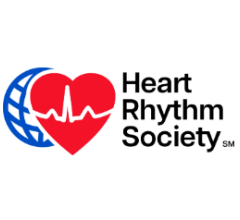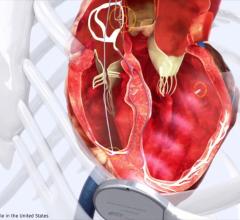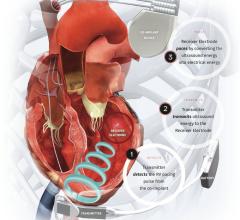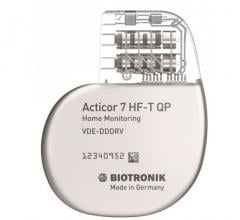
May 9, 2017 — Biotronik announced U.S. Food and Drug Administration (FDA) approval and the launch of Sentus ProMRI, the thinnest quadripolar left ventricular lead available in the United States. This introduction completes Biotronik's second-generation ProMRI lead portfolio, which also includes Solia ProMRI and Plexa ProMRI.
Sentus ProMRI is approved for use with heart failure devices based on data collected during the QP ExCELs study. The study, which included 53 sites in the United States, demonstrated Sentus ProMRI QP's performance. Key data points included:
- Complication-free rate of 97.1 percent at six months;
- Lead dislodgement rate of 1.43 percent; and
- Achievement of permanent pacing vector pacing threshold lower than 2.5 V for 93.4 percent of subjects at three months.
Sentus ProMRI is a quadripolar coronary sinus left ventricular (LV) lead with an isodiametric design that marries co-radial wire insulation technology and polyurethane coating for maximum flexibility and reduced friction. The lead's four electrodes feature Biotronik’s fractal iridium coating to maximize performance.
"With the array of leads available today, every patient should be implanted with an MR conditional device," said Venkat R. Iyer, M.D., electrophysiologist at Bayview Physicians Group in Norfolk, Va. "Our patients deserve nothing less than the best possible care. With MR [magnetic resonance] conditional solutions, we can help ensure this continues throughout the patient care journey."
Sentus ProMRI completes the ProMRI quadripolar system when used with Biotronik's Inventra HF-T QP cardiac resynchronization therapy defibrillator (CRT-D). This makes it the only MR conditional heart failure solution available in the United States that delivers ultra-high energy (42J) therapy on the first and every shock, according to the company. This system offers Closed Loop Stimulation (CLS) — Biotronik’s physiologic rate-adaptive algorithm that automatically optimizes to each patient's needs based on real-time metabolic demand. It also features Biotronik Home Monitoring, which has shown a 50 percent reduction in mortality1 in patients with heart failure, as proven in the IN-TIME study.
For more information: www.biotronik.com
Reference
1. Hindricks G, et al. The Lancet. 2014, 384 (9943).


 July 21, 2025
July 21, 2025 









